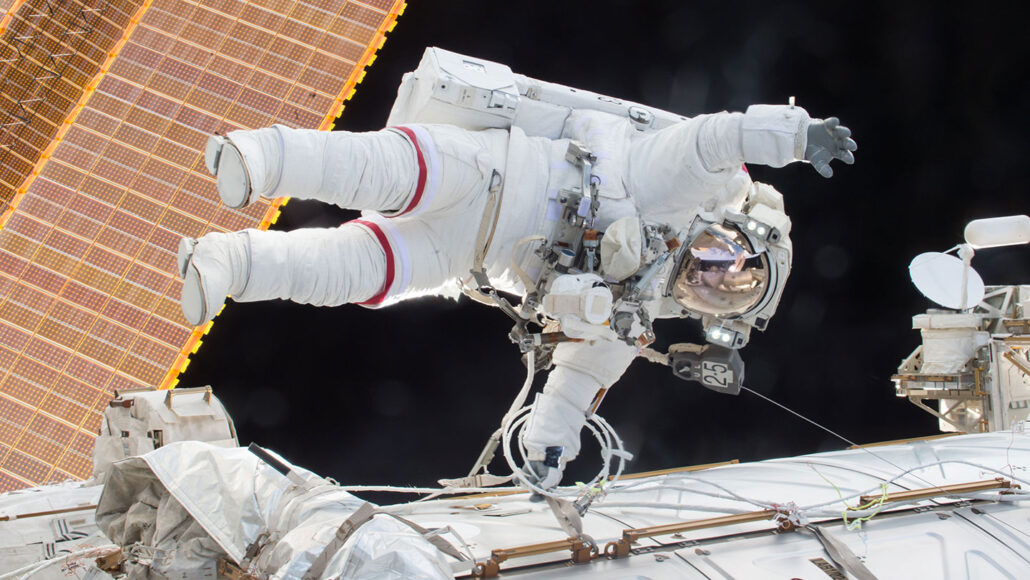Questions for “Space travel may harm health by damaging cells’ powerhouses”

After a year in space, astronaut Scott Kelly (seen here on a spacewalk in December 2015) experienced changes in his mitochondria — energy-producing structures in cells — a new study finds.
NASA